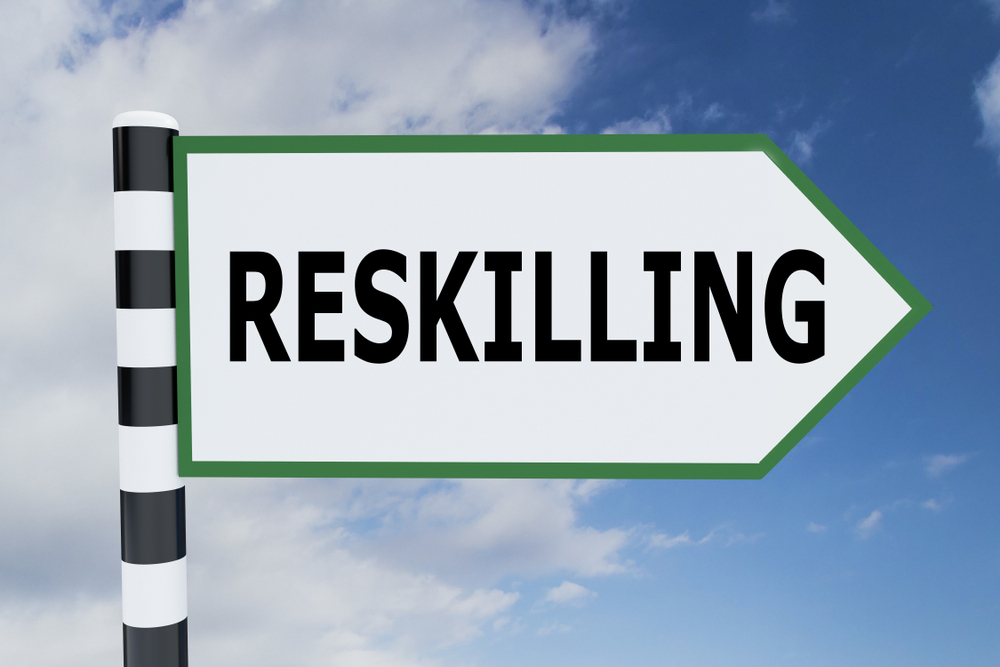There has long been a disconnect between what employees learn during their formal education and what employers find they need on the job. That’s true not only for long-term employees but also even for those newly emerging from institutes of higher education.

Technology and the pace of change are so rampant these days that it is increasingly difficult for educators to stay on top of these shifts. And COVID-19 is making it even more difficult.
Rampant Disruption Even Greater with COVID
According to McKinsey & Company, “Adapting employees’ skills and roles to the post-pandemic ways of working will be crucial to building operating-model resilience.”
Before the pandemic, reskilling was already becoming a topic of much conversation, especially in certain circles. In 2017, the McKinsey Global Institute had “estimated that as many as 375 million workers—or 14 percent of the global workforce—would have to switch occupations or acquire new skills by 2030 because of automation and artificial intelligence.”
Now, lessons being learned during the pandemic—about how and where to work and how to interact with customers and markets in new ways—are poised to raise the bar even higher.
6 Steps Toward Reskilling
McKinsey recommends six steps organizations should follow toward reskilling their workforce both to address tech trends that were already emerging and to respond to the shifting landscape of business practices and business models being seen during the pandemic.
- Rapidly identify the skills a new business model will require. It’s not business as usual—what skills will employees need coming out of the pandemic?
- Help employees begin to build the skills identified. McKinsey recommends focusing on “four kinds of skills: digital, higher cognitive, social and emotional, and adaptability and resilience.”
- Focus on tailored learning to close key gaps.
- Take a plan, do, study, and act (PDSA) approach: “Start now, test rapidly, and iterate.”
- Act small—be nimble.
- Don’t cut back on training budgets.
The old aphorism “when life hands you lemons, make lemonade” may be particularly appropriate during and after the pandemic; companies are poised to make a lot of lemonade if they take the steps to leverage and learn from the experiences they’re having now and what those experiences may mean for their futures.
